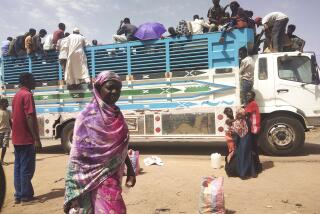Having devastated Yemen in bombing campaign, Saudi Arabia pledges $1.5 billion in humanitarian aid
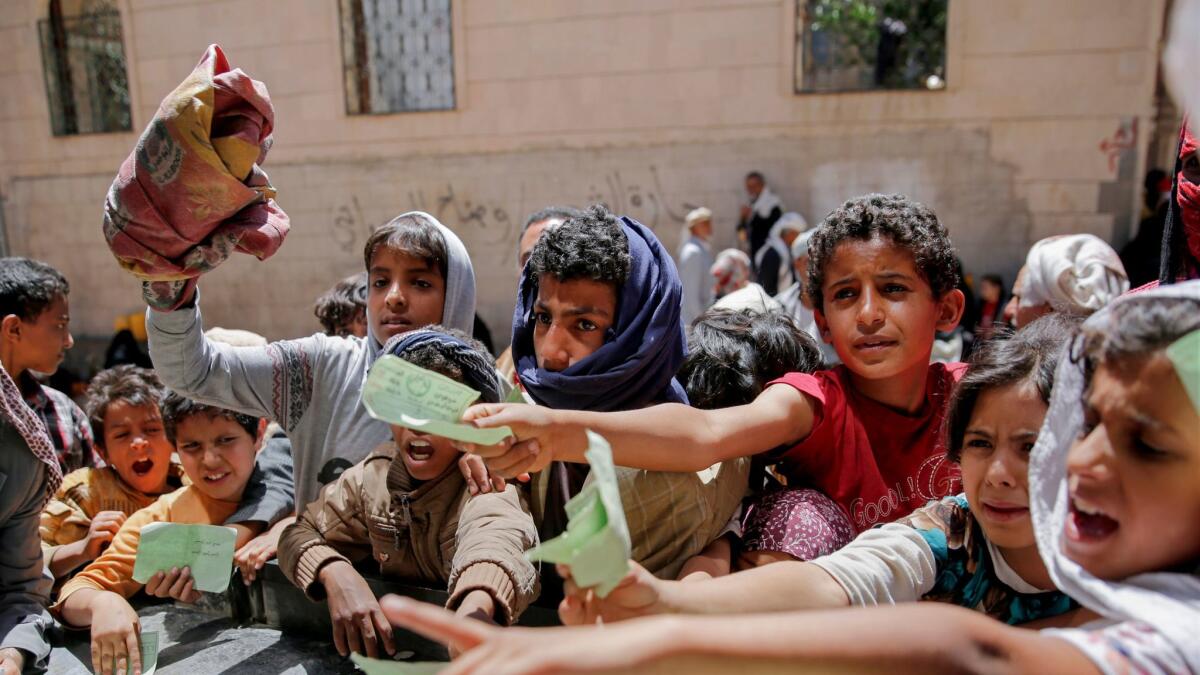
In a gesture inspiring both praise and scorn, Saudi Arabia announced Monday that it would donate $1.5 billion in new humanitarian aid to Yemen, where almost three years of war has devastated the country’s infrastructure, tanked the economy and caused widespread hunger and disease.
The money will be donated to the United Nations, and represents half of the U.N.’s $2.96 billion humanitarian appeal. That is the largest consolidated humanitarian appeal ever launched for Yemen, which is enduring what the U.N. has described as “the worst man-made humanitarian crisis of our time.”
The conflict pits pro-government forces, backed by a nine-member Saudi-led Arab coalition, against Shiite Muslim Houthi rebels, supported by Iran. The war has killed an estimated 10,000 people and displaced 2 million.
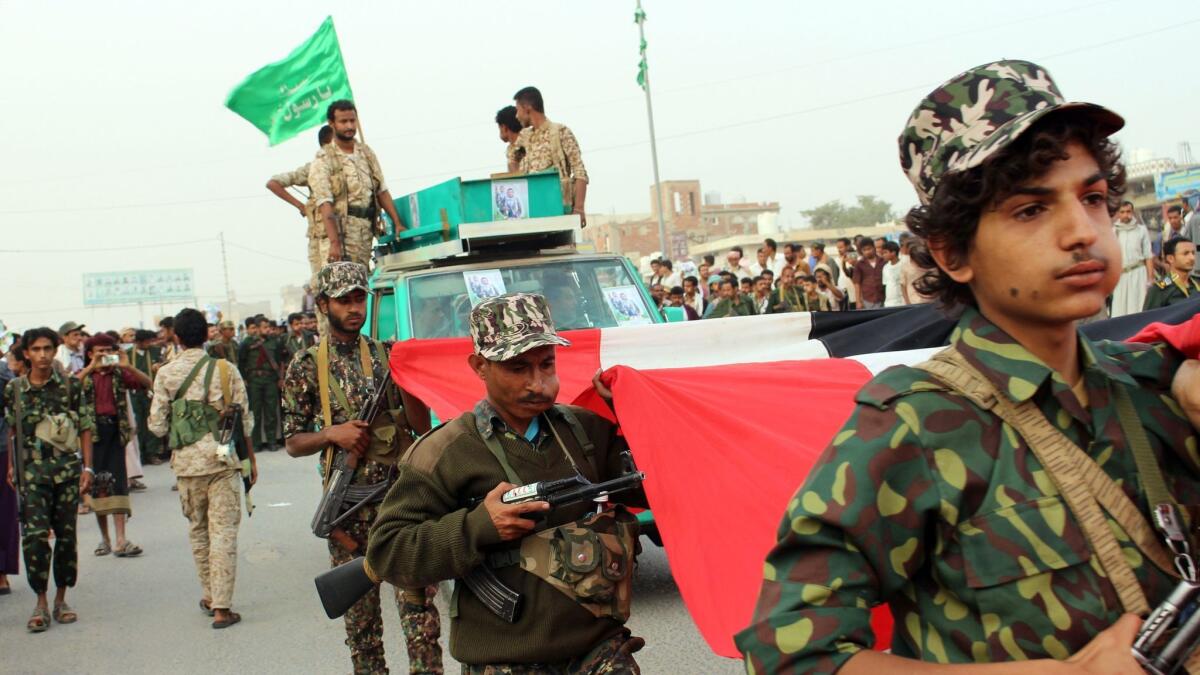
According to a statement from the coalition, the assistance package is intended to address the needs of Yemenis in all regions by enhancing the flow and delivery of humanitarian aid, including food, medical supplies and commercial goods.
The $1.5 billion would be distributed across U.N. agencies and international relief organizations. In addition, the coalition pledged $40 million to expand the capacity of Yemen’s ports to accommodate additional shipments, and $30 million for road upgrades. Last week, the kingdom announced that it had contributed $2 billion to the Central Bank of Yemen to promote economic stabilization and improve the quality of life for Yemenis, the statement said.
The coalition also pledged to run multiple daily flights of cargo planes carrying aid from Jizan in Saudi Arabia to Yemen’s coalition-controlled Marib province, and establish 17 “safe passage corridors … to ensure safe overland transportation of aid to nongovernmental organizations operating in the interior of Yemen,” the statement said.
The U.N. estimates that more than 22 million people are in need of humanitarian assistance and of those, as many as 8 million are near starvation. About 1.8 million children under the age of 5 are acutely malnourished, and cholera is rampant.
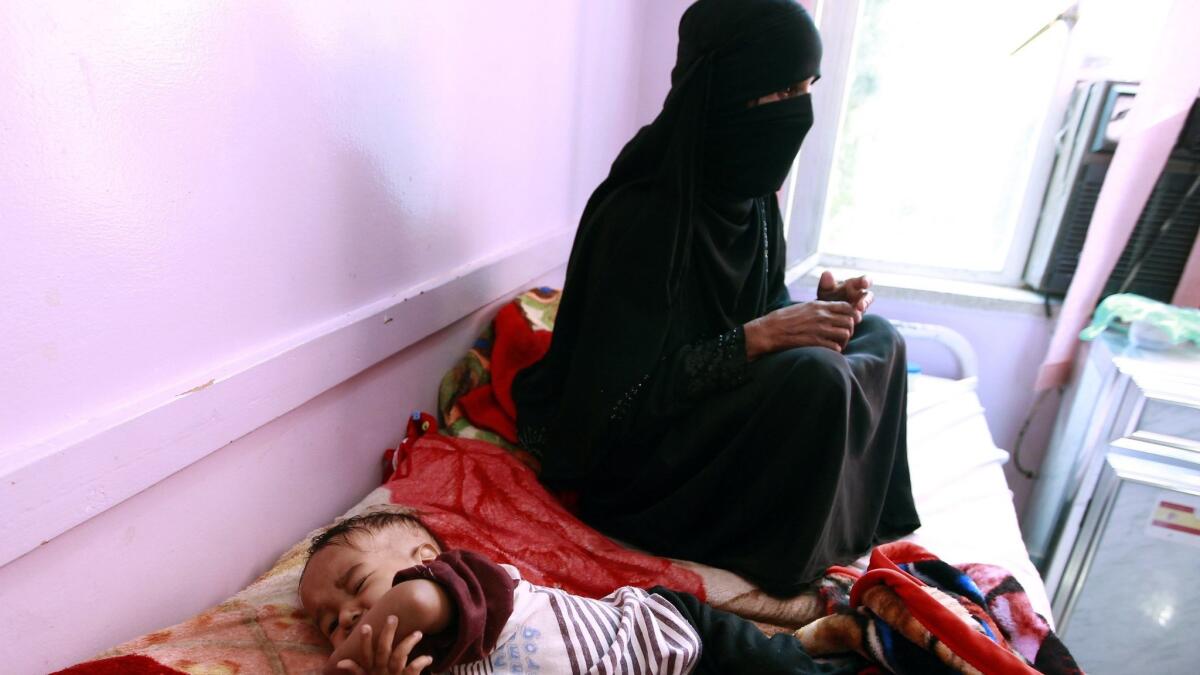
Yemen’s president, Abdu Rabu Mansour Hadi, praised Saudi Arabia’s “efforts to alleviate the suffering” of his people, according to a statement issued by the coalition.
But some analysts and human rights experts questioned the motives behind the kingdom’s gesture. Some called it a PR stunt, while others said it was an attempt to quell criticism of the coalition’s conduct during the war and change the narrative surrounding the conflict in their favor.
The coalition has been accused of killing civilians in indiscriminate bombings that have devastated Yemen’s infrastructure, including roads, water treatment facilities, factories, schools and hospitals. Human rights monitors have accused the coalition of blocking and confiscating aid. Joining Saudi Arabia in the coalition are Egypt, Jordan, Kuwait, Bahrain, Qatar, Sudan, Morocco and the United Arab Emirates. (The U.S., which is not part of the coalition, has been criticized for selling arms to Saudi Arabia.)
“As the Saudi coalition advances against the Houthis, it draws increased ire from humanitarian advocates,” said Alexandra Gutowski, senior military affairs analyst at the Foundation for Defense of Democracies. “The coalition is unable to build a narrative about the strategic issues at stake — freedom of navigation, Iran’s malign regional influence, and a persistent Al Qaeda threat — while the humanitarian crisis dominates coverage of Yemen.”
Kristine Beckerle, Yemen researcher for Human Rights Watch, said it was important that the coalition’s wrongdoings not be downplayed as a result of the kingdom’s donation.
“Throughout the conflict you’ve seen members of the coalition, particularly Saudi Arabia, use their financial clout in various efforts to try and paper over the very serious and the very real violations that are ongoing by the coalition in Yemen,” Beckerle said. “My major concern is that this grand gesture, while it will be important to help the humanitarian response, is not an actual showing of goodwill that there’s going to be a change of heart in terms of the way in which the Saudis are operating in Yemen.”
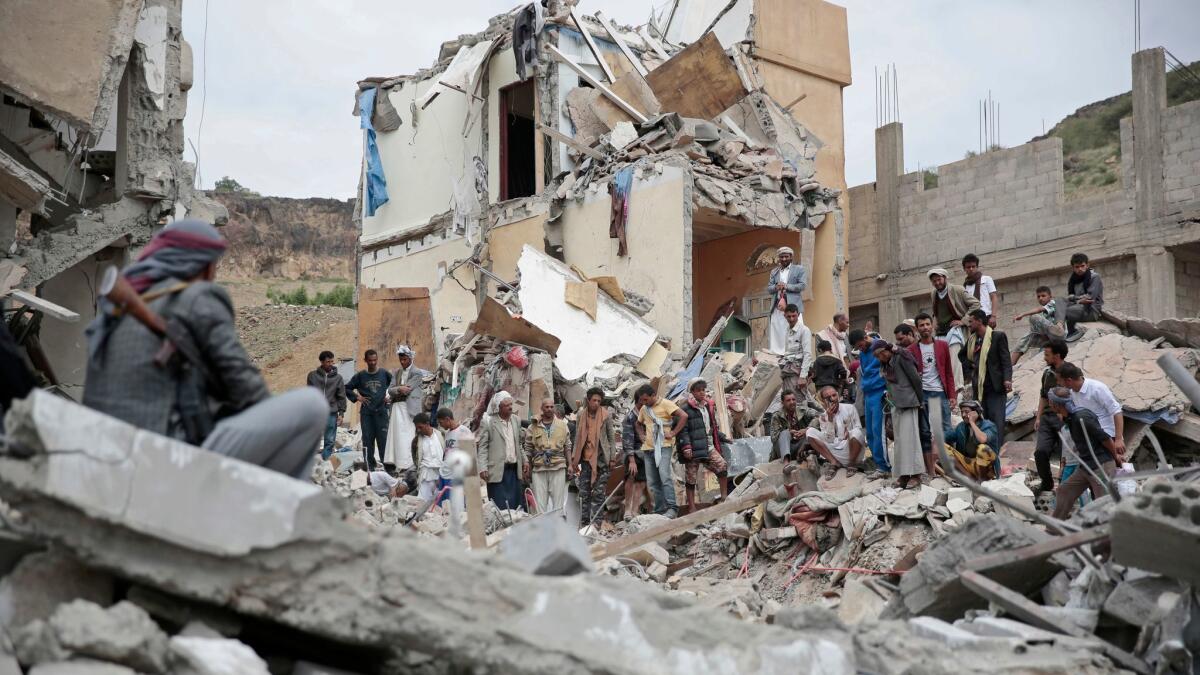
Beckerle said that in the past, the Saudis have used threats of withholding funding to the U.N. and other states in an effort to avoid scrutiny.
Last year, for example, it was widely reported that the U.N. secretary general removed the Saudi coalition from the world body’s “list of shame” for violations against Yemeni children, after the kingdom threatened to withdraw millions of dollars in funding to various humanitarian programs.
“I think you can celebrate the humanitarian funding while making it very, very clear that [it’s] not a free pass to carry out violations that exacerbate the exact humanitarian crisis that that funding is meant to respond to,” Beckerle said.
Analysts acknowledged that the coalition is not the sole offender in the Yemen conflict. The Houthis are also known to have carried out violations.
In a statement issued by the coalition, Mohammed Saeed al Jaber, the kingdom’s ambassador to Yemen, blamed the “widespread deterioration in food and water security” on the Houthis’ “hindrance of humanitarian aid flows, and their rejection of a political solution.”
Katherine Zimmerman, a research fellow at the American Enterprise Institute, a Washington-based public policy think tank, said the Saudis were trying to “shape the delivery of assistance on the ground.”
For example, the kingdom wanted to make Jizan the primary aid hub in order to have full oversight over incoming supplies.
“The idea is that if all humanitarian assistance is coming in through Saudi Arabia to other distribution sites, then the coalition can blockade other ports in Yemen and not be criticized for preventing humanitarian access,” Zimmerman said.
In Yemen, the new Saudi plan moves the primary hub from Hodeidah port — through which most food imports have historically traversed and which the Houthis continue to control — to Marib city, which is under the control of the coalition and “less central as a distribution hub,” Zimmerman said.
That’s “going to further politicize aid in Yemen,” Zimmerman said, because the Saudis were shifting the aid distribution centers to places where they have patronage networks.
“By moving the aid resources they are enabling a bid for support of various local populations that they’re trying to win over,” Zimmerman said. “The Saudis are buying local and international support by leveraging the disastrous humanitarian situation that they played a hand in creating.”
Times staff writer Tracy Wilkinson in Washington contributed to this report.
For more on global development news, see our Global Development Watch page, and follow me @AMSimmons1 on Twitter
More to Read
Start your day right
Sign up for Essential California for news, features and recommendations from the L.A. Times and beyond in your inbox six days a week.
You may occasionally receive promotional content from the Los Angeles Times.


